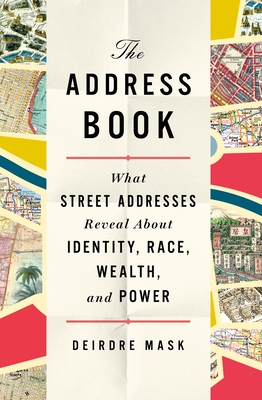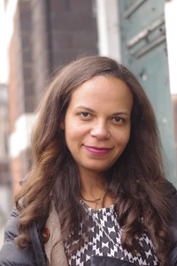
THE ADDRESS BOOK
What Street Addresses Reveal about Identity, Race, Wealth, and Power
By: Deirdre Mask
Published: April 14, 2020
Publisher: St. Martin’s Press
Non-Fiction

Growing up in very rural Iowa, my address was Rural Route 1. I was always so jealous of other addresses that my friends or family members had. They had house numbers and street names like Elm or Washington. My sister lived on Switch Street. Then not too long before I moved out and headed off to college, my parents finally got a “real” address. Due to 911 coming to our area, every house had to have an actual house number and street address. All the gravel roads around our house that we knew by family names were finally given actual street signs and the houses had signs along the road with house numbers. My parent’s farm finally had an address, Fox Road. I now live in a small town, actually on Main St, and still love my address and remember how much I hated not having one.
There are many other people in our country and world that don’t have an address because they are homeless or the town/city/country they live in doesn’t have a system for addressing homes or a grid for street names. I know that seems incredible in this day and age, but especially in slums, there are projects happening now to actually give each shack, tent, or space an address in places like Kolkata or Haiti. Because, as we all know, every form you ever fill out needs an address. Usually, the first two questions are name and then address. Not having an address makes it hard to apply for jobs, housing, or financial assistance. In the homeless shelter I used to work in, clients both of our day program and those who resided there, were able to use our building address on applications and then stop by to check for their mail. But, it gave them that first step they needed to be successful, an address.
This book was eye opening in relation to the number of places in our world that still don’t use a street grid/address system that most of the cities and towns and counties in the US use today. I have never really thought about how difficult it must be for an outsider to try to find a restaurant or hotel assuming that numbers always move consecutively or that a street doesn’t have several different names all on one stretch.
I also found the naming of streets to be quite political and can say a lot about a community, again, something I’ve never thought about. If in Scotland, you live on London Road, you tend to feel less Scottish. If you live Church Street, does that mean you are religious or do you hope to become religious because you live there? It took a campaign for London residents of Butt Hole Lane to change their street name to Archers Way. Really? How can that not be an obvious thing that needs to be changed? In Germany, many street names were named after Nazi officers. Obviously, there has been a push to change those street names over the years.
When I send Christmas cards every year to our family and friends, I love writing all the various street names like Spring Meadow Place or Island View Dr. Don’t they just conjure up a beautiful place? Surprisingly, no one in my address book has an address that makes me cringe.
Because there are still places in our world without an actual address, a new company called What3Words has come up with a 3-meter-square for every spot in the world, whether it is in the middle of a jungle or a houseboat on a lake. Every 3-meter-square has a named location with three words. The founders came up with 40,000 words which then can make up 64 trillion 3-word combinations. So every location is unique. If you have the app, you can look up a 3-meter-square exact location with the three names it has been assigned. For example, cooled.swoop.fitness or baked.crumbling.necks. Find out your specific location with the what3words app. It’s kind of fun!
Overall, I found this book pretty interesting with lots of facts and history to maybe pull out during a conversation or use it in your next family trivia as I did. If you like books that introduce you to a new topic or help you think differently about our world, you may want to add this book to your list.

Deirdre Mask is a writer, a lawyer, and sometime academic. Her work has appeared in The Atlantic, The Guardian, The New York Times, The Economist, Lit Hub, The Harvard Law Review, The New Hibernia Review, The Dublin Review, and Irish Pages. THE ADDRESS BOOK is her first book. Originally from North Carolina, I live in London with my husband and daughters. For more, check out her website, HERE.
To purchase a copy of THE ADDRESS BOOK, click the photo below:

Thanks to the publisher for sending an eBook for the purpose of this review. This review is my honest opinion. If you choose to make a purchase through the above links, I may receive a small commission without you having to pay a cent more for your purchase.
Posted Under Book Review, Deirdre Mask, geography, non-fiction
